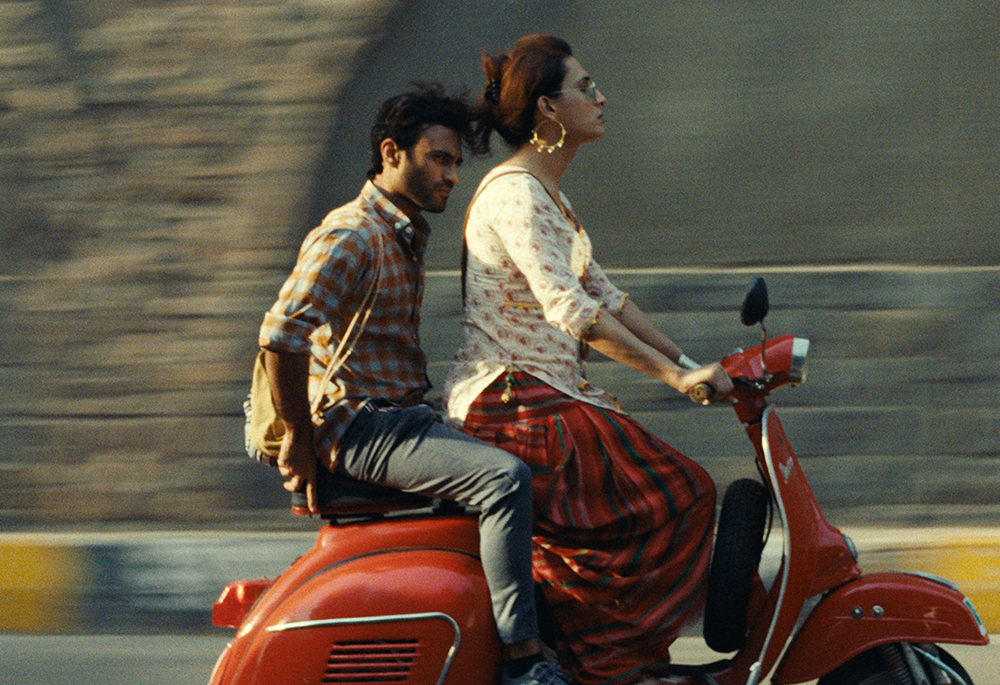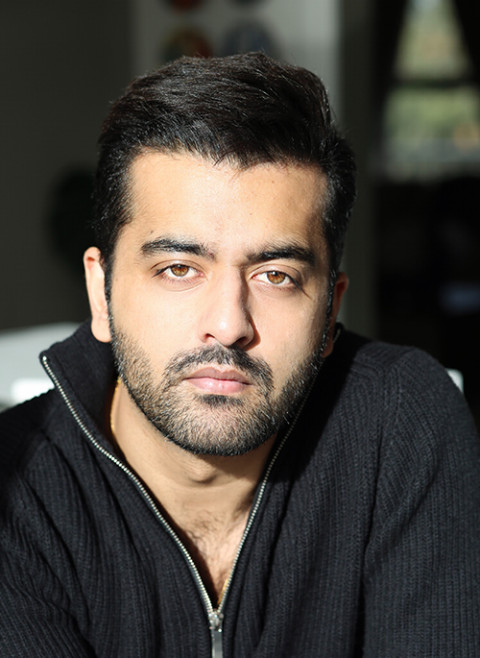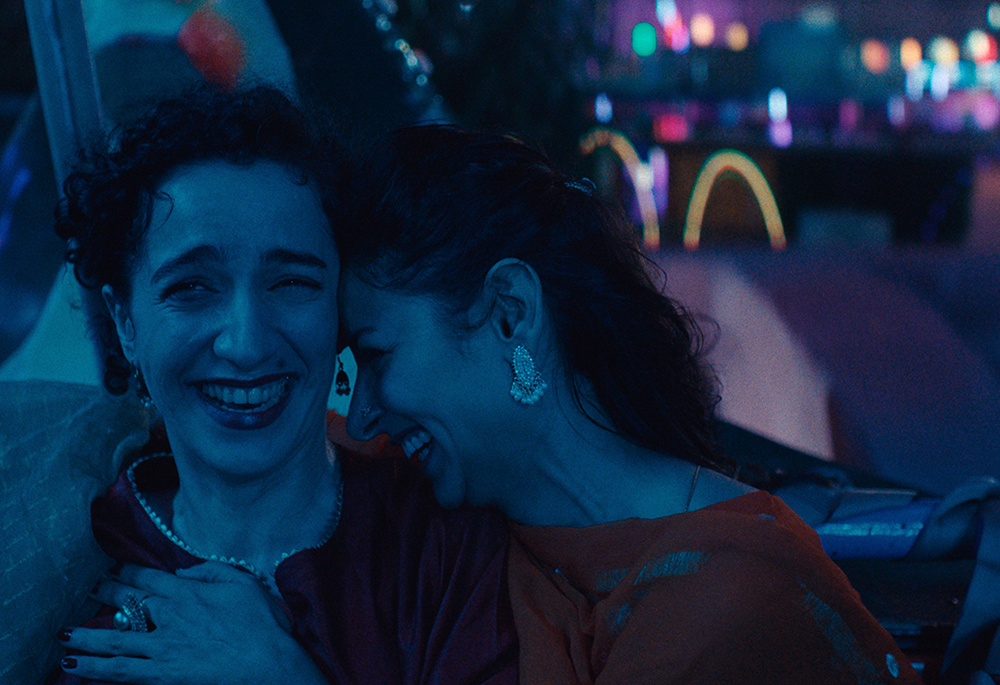
Ali Junejo and Alina Khan appear in a still from "Joyland" by Saim Sadiq, an official selection of the Spotlight program at the 2023 Sundance Film Festival. (Courtesy of Sundance Institute)
Most of the characters in "Joyland," the debut film by Pakistani director Saim Sadiq, are limited by what they’ve been taught they are allowed to desire.
Happy father of three Saleem (Sameer Sohail), prays that he and his pregnant wife Nucchi (Sarwat Gilani) will finally welcome their first boy. His father, Abba (Salmaan Peerzada), hopes to lead a life of respectability and good relations with his neighbors. But Abba is worried about his youngest son Haider (Ali Junejo), who has taken up helping with domestic duties while his wife Mumtaz (Rasti Farooq) works as a makeup artist.

Saim Sadiq, director of "Joyland" (Courtesy of Sundance Institute)
Ideally, Abba believes, Haider and his wife would revert roles. She would be home raising the children they don't have, while Haider would be out working and fulfilling the duties attributed to manhood in the conservative Lahore they inhabit. But reality would have the family moving further from, not closer to, that imagining.
Haider's life is upended when he unexpectedly meets Biba (Alina Khan) a transgender woman who works as a dancer in the local erotic theater. Despite his lack of experience, Haider is hired to be one of her new backup dancers (he tells people at home that he got a job as a theater manager), but as fate and romance films would have it, Haider has seen Biba before.
In the flashback that takes us back to that first encounter, it's impossible not to be in awe of the way cinematographer Joe Saade captures the moment. Haider is in the hospital trying to buy medicine for his sister-in-law, who has just given birth, when Biba walks toward him without noticing him; the camera lingers on her and teases an enigma. She has undeniable magnetism and beauty, but also harbors immense sadness. The camera stays fixated on Haider and lets the actor's eyes convey love at first sight. We don't question it; it's cinema capturing feeling in the purest of forms.
Advertisement
When Haider tells her about the hospital encounter, she vehemently denies it. We never find out what she was doing there, but we understand society has forced her to maintain a life full of secrets.
Based on what art has told us about forbidden romances, it's easy to think we know where "Joyland" is headed, but Sadiq ignores conventions to deliver a complex work that defies genre and classification — very much like the way in which his characters demand to be seen in a different light.
Sadiq's generosity as a filmmaker comes across in the way in which everyone in "Joyland" could be a protagonist. Everyone's story is told with the same care, lack of judgment and love. For example, as we see Haider and Biba begin an affair, we understand their love for each other in a way that makes it hard to pass moral judgment on his infidelity. Haider's greatest sin is that in trying to find his own happiness, he is unwillingly breaking Mumtaz's heart.
Sadiq's generosity as a filmmaker comes across in the way in which everyone in "Joyland" could be a protagonist.
The film's villain could be said to be society itself, which imposes rules that deny human beings the tools necessary for fulfillment. We watch, for instance, how Biba struggles to be respected as a person due to her gender identity. When she sits with other women in public transportation, she is chided and told to sit with men. Enter Haider, who defiantly sits next to her in the women's section, quietly demanding she is treated with dignity.
But Haider is far from being a knight in shining armor and is eventually overcome by what "being a man" means in his Pakistani society. Power dynamics are flipped constantly, as the film boldly goes beyond gender roles to ponder why it's so difficult for human beings to simply be kind to one another.

Rasti Farooq and Sarwat Gilani appear in a still from "Joyland" by Saim Sadiq, an official selection of the Spotlight program at the 2023 Sundance Film Festival. (Courtesy of Sundance Institute)
The film is named after an amusement park the characters visit on a few occasions. For Mumtaz and Nucchi, it becomes a sanctuary where they're able to be in communion without the eyes of the men in their lives. For Haider, it becomes a place of hiding. What Sadiq proposes with this gorgeous, nuanced film is that a true Joyland would be possible if we took the time and care to be with each other and understand we're not as different as we think.
Powered by the excellent performances of the ensemble members (Khan in particular exudes pure star quality) and the subtlety of the points it makes, "Joyland" invites us to repeat visits. I have now watched it twice and both viewings revealed something new, something that eluded me before this film, making "Joyland" the rare piece of art that truly feels like a gift.








